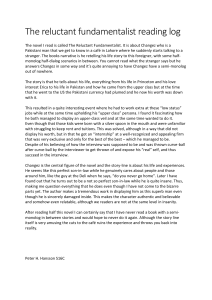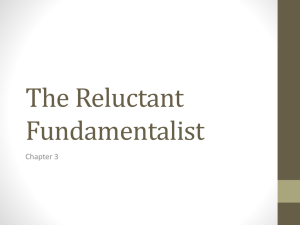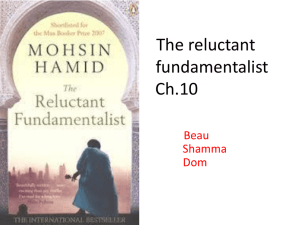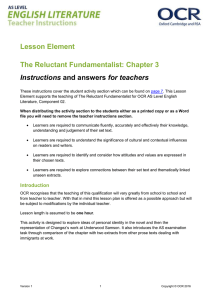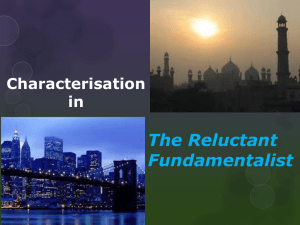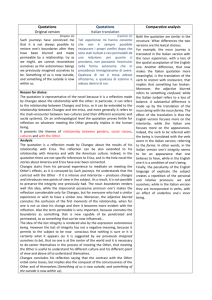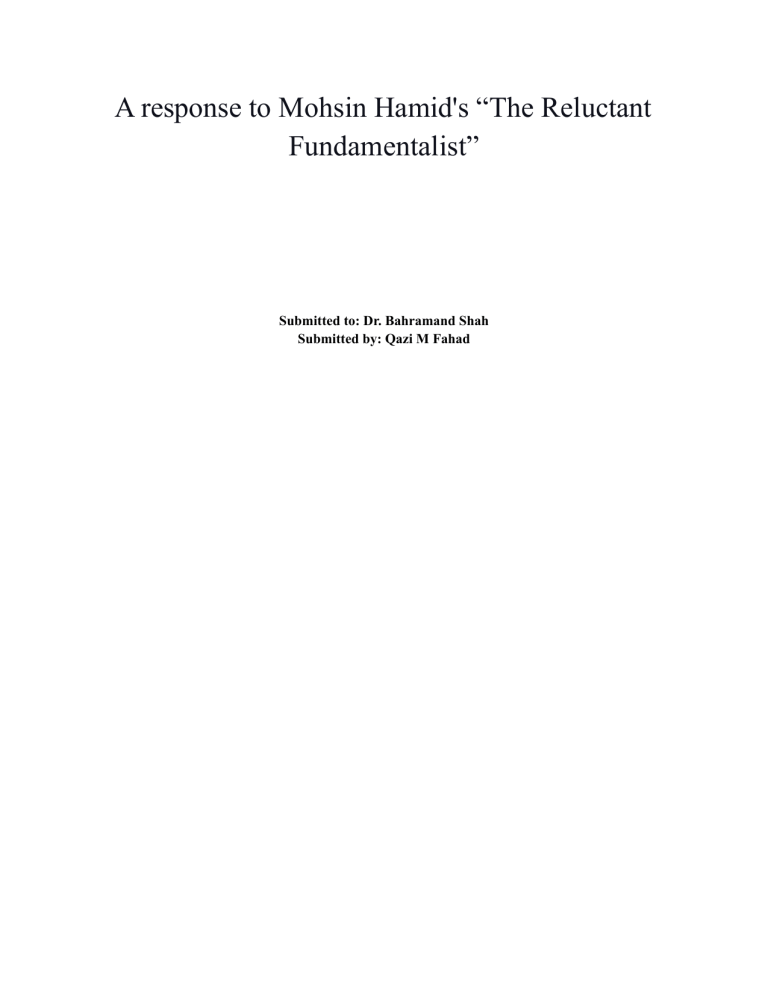
A response to Mohsin Hamid's “The Reluctant Fundamentalist” Submitted to: Dr. Bahramand Shah Submitted by: Qazi M Fahad I will analyze two dimensions of Mohsin Hamid's The Reluctant Fundamentalist. Concerning the first—Changez's change of allegiance, beliefs and his life after 9/11—I shall discuss the multiple meanings of the word "fundamentalist". Then I shall discuss the importance of Changez's name and development from a proponent of the American Dream to a critic of global capitalism and US-American imperialism. I shall discuss how the clash between East and West is dramatized through the use and critique of Orientalist discourse. Changez is a reluctant fundamentalist because his environment sees him as a religious fundamentalist [presumably because of the racist backlash in the USA after the events of 9/11 and his decision to keep the beard he has grown in Pakistan when he returns to the USA], though he is not one. On the other hand, he rejects the economic fundamentalism of the business world to which he belongs – a world-oriented solely around gains and losses. To examine the contrasting meanings of the word "fundamentalist." in this context, it refers to "A person who relies on fundamental analysis to identify market trends and forecast developments in the value of an investment." The novel seems to dramatize an opposition between two belief systems. The first is the US-American capitalist, neoliberal belief system, supposedly based on the idea of meritocracy and the individual as a rationally self-interested, economical unit that one might argue is one of the consequences of the politico-economic theory that endorses free trade, privatization, and minimal public support for social services/welfare, and so on. The second seems to be based on a more traditional humanist definition of the individual as defined by national and familial tradition and culture and their values. The significance of Changez's name in the novel will reveal how the transformation comes about. Changez's name situates him at the intersection of these two different belief and value systems: on the one hand, it contains the word "change." It is the second-person plural imperative form of the French verb, to change, "changer," that is, "changez," thus suggesting the ideas of progression and development. In a specific economic context, Changez's name may associate him with the change represented by "the economic law of capital's movement from less to more profitable global spaces." Changez criticizes the Orientalizing vision of many Westerners vis-à-vis Pakistan and the non-Western world more generally. He compares America and Pakistan in ways that favour the latter or find similarities between various aspects of the two worlds. The most relevant of these stereotypes of the Orient are those of Western superiority over the Orient, Western progress and development versus Oriental stasis or backwardness. Changez's subjectivity changes in the novel: he is transformed from a financial fundamentalist into an anti-American analyst and activist. Changez moves from being a partial believer in a system that serves global capitalism—Underwood Samson's meritocracy and its belief in financial fundamentals—to believing in values that run counter to it. In pursuit of these values, Changez uses the skills he learned at Underwood Samson to enable his university students to understand this economy, advocate an end to US-American interventions in Pakistan, and demonstrate against them. The Reluctant Fundamentalist also suggests several other reasons for Changez's belief that the novel does not change. His tendency to resort to Orientalist stereotyping despite his criticism of it, his traditional deference to his elders, and his failure to protest against the effects of the apparent class and wealth differences in Pakistani society.
